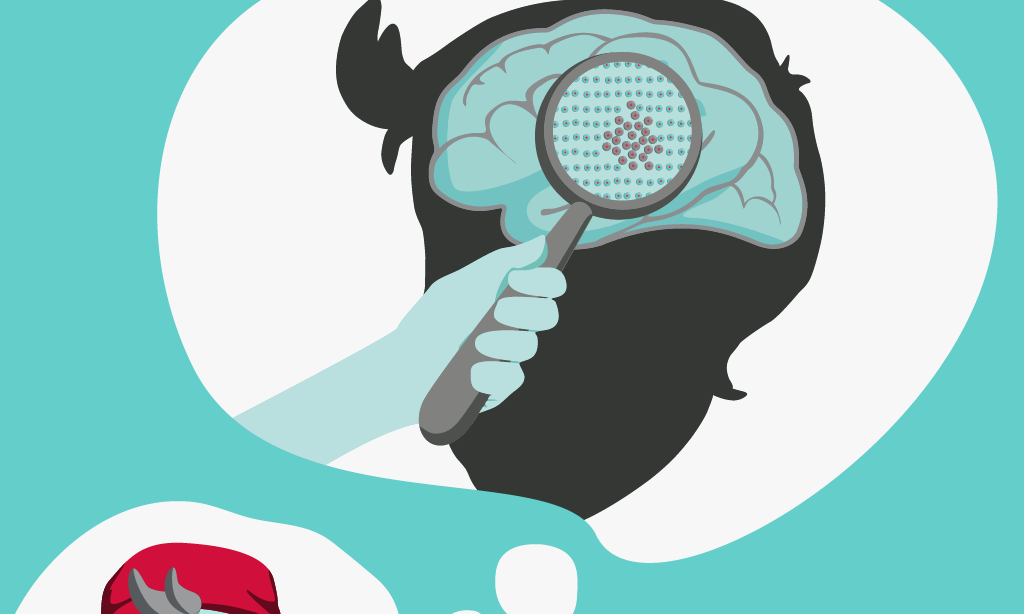Ependymoma
Ependymoma is a type of brain tumour formed from ependymal cells in the brain, which produce cerebrospinal fluid. It is the third most common type of childhood brain tumour. The average age of diagnosis is five years old.
Short summary
Ependymomas are brain tumours formed from the cells that produce cerebrospinal fluid. They are usually slower growing and less likely spread, and are often found in the back of the brain.
Ependymomas are childhood brain tumours, with the average age of diagnosis being 5 years old.
Symptoms can include tilted head, loss of balance, difficulty swallowing, headaches, vision problems, nausea and vomiting. Treatment can include surgery, radiotherapy and chemotherapy.
On this page:
- What is an ependymoma?
- Ependymoma grading
- Ependymoma tumour symptoms
- Ependymoma treatment
- Ependymoma causes
- How long can someone live with an ependymoma?
Get support
If your child or a child you know has recently been diagnosed with an ependymoma, you may be worried about what this means. This is a natural way to feel. Our Children and Families team can help answer any questions you may have or provide a listening ear if you need one.
Get your free Information Pack
Our Brain Tumour Information Pack can help you better understand your diagnosis and feel confident talking to your medical team.
Join our online support groups
Our online support groups are a great place to connect with other people affected by a brain tumour.
What is an ependymoma?
Ependymomas are a type of brain tumour that are formed from the ependymal cells. These are the brain cells that produce cerebrospinal fluid (CSF).
You might sometimes hear an this type of tumour called a glioma.
These tumours are usually:
- slow growing
- less likely to spread.
While they can develop at any age, the average age of diagnosis is 5 years old and at least a quarter of diagnoses happen before the age of 2.
Most childhood ependymomas are found in the hindbrain (also called the posterior fossa). This area controls functions like balance, movement, breathing and blood pressure.
Ependymoma grading
There are four different types of ependymoma, which fit into three different grades.
You might hear your child’s doctor call the brain tumour by a more specific name. This could be:
-
Subependymomas are grade 1 ependymomas that are relatively uncommon in children and appear most often near a ventricle.
Myxopapillary ependymoms are grade 1 ependymomas that are also relatively uncommon in children and usually develop in the lower part of the spinal column.
-
These are the most common type of ependymoma tumour and usually appear close to, or in, a ventricle in the hindbrain.
-
Also known as anaplastic ependymomas, these are the fastest growing ependymal tumour and also commonly grow in the hindbrain.
Ependymoma tumour symptoms
Most child ependymomas develop along the ventricle in the hindbrain known as the fourth ventricle. Depending on where the tumour is located, your child might have one or more of the following symptoms:
- Their head seeming to be twisted or tilted (known as torticollis or wry neck)
- Loss of balance (known as ataxia)
- Problems speaking (known as dysarthria)
- Difficulty swallowing (known as dysphagia)
- Making overly clumsy movements (known as dysmetria)
- Headaches
- Seizures
- Vision problems, like double vision
- Nausea or vomiting
They may also experience some of the general symptoms of childhood brain tumours.
Ependymoma treatment
Ependymoma treatment often involves the following:
- Surgery
- Radiotherapy
- Chemotherapy
The first treatment your child is likely to have is surgery to remove as much of the tumour as possible. If the tumour is low grade and the surgeon is able to remove all the tumour, your child may not need any other treatment.
If it’s not possible to remove all the tumour or if the tumour is high grade, then surgery may be followed by radiotherapy or chemotherapy.
Ependymoma causes
There is nothing you or your child have done, or could’ve avoiding doing, that would have stopped an ependymoma from growing.
As with any brain tumour, we aren’t sure why they begin to develop, although research is helping us to understand some of the risk factors involved.
How long can somebody live with an ependymoma?
This is affected by many factors. It depends on the grade, size and location of the tumour. It also depends on your or your child’s body’s unique response to treatment and how healthy you are in general.
Find out more by clicking the button below.

Join our community online
Our online support group for parents is a great place to connect with other parents affected by a brain tumour and share your experiences.
Support and Information Services
Research & Clinical Trials Information
You can also join our active online community.
In this section

Get support
If you need someone to talk to or advice on where to get help, our Support and Information team is available by phone, email or live-chat.

Jake explains brain tumours
Meet Jake! In this video he helps children to understand their brain tumour diagnosis in a comforting and reassuring way.
Get your free Brainy Bag
Our Brainy Bag is a free gift for children and young people who have been diagnosed with a brain tumour, made up of a range of handpicked toys and activities!
Recommended reading

Molly’s story
“When I was first diagnosed, the biggest feeling I experienced was relief. I finally felt as though the doctors were listening to me.”
Share your experiences and help create change
By taking part in our Improving Brain Tumour Care surveys and sharing your experiences, you can help us improve treatment and care for everyone affected by a brain tumour.